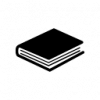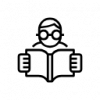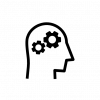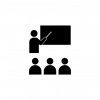Teaching context and philosophy
My Philosophy
My teaching philosophy aligns with a quote from Jacques-Yves Cousteau who said, “People protect what they love, they love what they understand, and they understand what they are taught”. I see education as an act that transforms our beliefs, values and purposes, with the potential to emancipate and empower its participants. As such, my purpose as a research and teaching academic is to create environments and opportunities that are conducive to learning where:
- Students take an active role in learning the requisite knowledge and skills that will enable them to effectively pursue any field or endeavour they choose in their future;
- Students develop critical reflection and interoceptive awareness such that they can balance their personal and professional interest with responsibility and care to others.
- Students transcend beyond content mastery to the next level where they engage effectively with others to effect positive changes on their community, society and the world; and
My Approach
My approach to learning and teaching is based on the principles of andragogy. When teaching Level 2 engineering science courses (2009-current), I apply the principle of self-concept by designing a series of adaptive online and face-to-face activities which allow students to be self-directed in their learning. By engaging them in collaborative problem-based learning, my students bring their own experience to the learning process and benefit from the experience of others, and thereby develop their metacognitive and problem-solving skills. Read more.
I extend these approaches to my Level 2 engineering design (2021-current) where students placed in diverse teams were tasked with using the user centred design thinking approach to solve problems in the chemical engineering sector. The collaborative project-based approach orients the students towards the development of skill sets that are practical and relevant to the engineering profession, such as critical inquiry, project management, teamwork and career development. Read more.
As my school’s Industrial Training Coordinator (2014-2017), I was responsible for coordinating a Work Integrated Learning Program where students first made the transition from being a student to becoming a professional engineer. To support the students, I develop a series of activities which develop their employability skills and professional network. I also secure funds to develop tools which track, evaluate, as well as provide feedback and academic credentials to the students on their readiness to make the transition. Read more.




